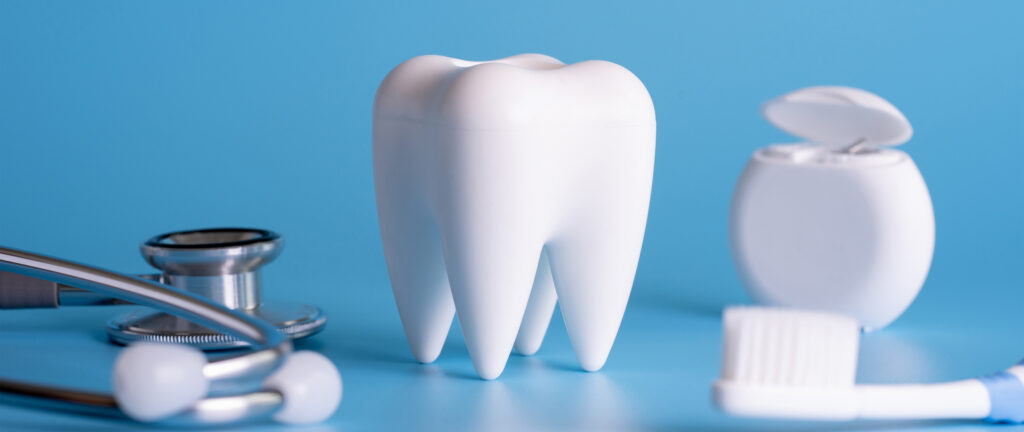What’s The Best Way to Floss
We all know we should floss, but it can be tough. Part of this is because flossing can feel like an extra task in an already busy day, but it...

When we think about dental health, we typically worry about cavities, gum disease, and tooth loss. However, it might come as a bit of a surprise, but your teeth and gums can offer many important clues about your systemic health. We already went in-depth about the connection between your teeth and your cardiovascular health, but your teeth are tied to your overall health in other ways as well.
In fact, your teeth or gums might show the very first hint of health issues you aren’t even aware of yet.
First, it’s crucial to understand that your mouth is much more than just a home for your teeth and tongue. It’s actually deeply connected to the rest of your body. When something changes in your oral health, it could potentially indicate a much bigger health issue.
The benefit of this interconnection is that catching these changes and symptoms early could help you and your healthcare providers take steps toward treating a more significant health concern.
Of course, you have heard of osteoporosis. Osteoporosis affects millions of people in the US alone, primarily women over the age of 50, but it can affect younger people as well as men. It is a condition where the density of your bones decreases over time, causing them to become brittle and more prone to break.
Osteoporosis can be difficult to notice at first because there may not be many outward physical signs or symptoms. But did you know that the signs of osteoporosis can show up in your mouth? Your jawbone, which supports your teeth, can also be affected by osteoporosis. If you notice your gums receding or your teeth feeling loose, it might be time to consult a health professional about your bone health.
If you suffer from heartburn, you’re probably all too familiar with the discomfort it causes. However, did you know that persistent acid reflux, especially at night, can affect your teeth? This acid can erode tooth enamel, most commonly on the backs of your upper molars, over time. This is a sign your dentist might pick up on.
If you’ve been experiencing heartburn, particularly at night, don’t ignore it, as reflux can have farther-reaching health consequences, including inflammation, ulcers, and bleeding, in addition to its effects on teeth.
Dementia, a condition characterized by a gradual loss of cognitive function, can also leave tell-tale signs in the mouth. One of the first things one might notice is declining oral hygiene, leading to plaque buildup. Gum disease, which can result from poor oral hygiene, may also exacerbate dementia.
There is also evidence to suggest that tooth loss can be a risk factor for Alzheimer’s, dementia, and neurodegeneration.
Lastly, let’s discuss diabetes, a condition that affects millions of people worldwide. Signs of diabetes can actually show up in your mouth. Symptoms such as bleeding gums, loose teeth, receding gums, and plaque buildup can all be indicators of diabetes. Moreover, if you’re already diagnosed with diabetes, and you notice these signs, it might be a hint that your blood sugar levels need better management.
Your oral health is deeply intertwined with your overall health. Changes in your mouth can reflect changes in your body, offering early warning signs of health issues. These signs shouldn’t be ignored.
A regular oral care routine, combined with professional check-ups, can go a long way in keeping both your mouth and your body healthy. However, if you notice any changes in your oral health, don’t hesitate to schedule an appointment. Prevention and early detection are key to managing many health conditions.